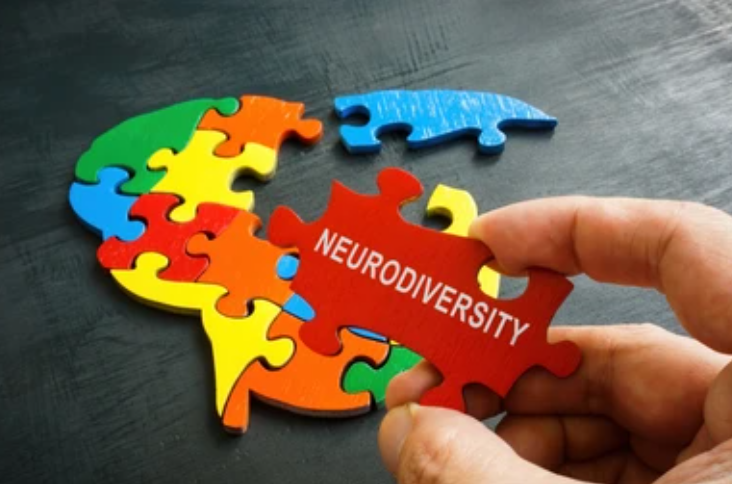Mother’s Day is a cherished occasion dedicated to honoring and celebrating the incredible mothers in our lives, expressing gratitude for their unwavering love, support, and sacrifices. It’s a time when families come together to create lasting memories, share heartfelt moments, and show appreciation for the maternal figures who have shaped our lives in countless ways. The day is filled with joy, laughter, and the warmth of shared love, as we acknowledge the immeasurable impact mothers have on our well-being and growth.
However, for those who have lost their moms, Mother’s Day can evoke a myriad of emotions, ranging from nostalgia and sadness to longing and grief. It can serve as a poignant reminder of the void left behind by the absence of their beloved mother, amplifying feelings of loss and yearning for her presence. While others celebrate and express gratitude for their mothers, those who have experienced this profound loss may find themselves navigating a complex emotional landscape.
It’s important to recognize and honor the unique experiences and emotions of those who are grieving the loss of their moms during this time. While Mother’s Day is a beautiful opportunity to celebrate maternal love and connection, it can also be a gentle reminder to extend compassion, empathy, and support to those who may be finding this day particularly challenging; we can all play a part in helping to uplift and support those who are navigating the complexities of grief on Mother’s Day.
What about Mother’s Day Can Trigger Grieving Individuals?
It’s important to realize that Mother’s Day can be a trigger for grieving individuals for several reasons, extending beyond just the loss of a maternal figure. Here, we’ve provided a list covering a few of them:
Loss of a Mother: For those who have lost their mothers, Mother’s Day serves as a poignant reminder of their absence. The day can amplify feelings of grief, sadness, and longing for their mother’s presence, love, and guidance.
Loss of a Child: Mother’s Day can also be challenging for mothers who have experienced the loss of a child. The day may evoke profound feelings of grief, sadness, and emptiness as they mourn the loss of their child and the dreams and memories associated with motherhood.
Complicated Relationships: For individuals who had complicated or strained relationships with their mothers or children, Mother’s Day can bring forth a mix of emotions, including guilt, regret, and sadness. The day may serve as a reminder of unresolved issues, unmet expectations, or missed opportunities for connection and reconciliation.
Infertility or Childlessness: Mother’s Day can be a trigger for individuals struggling with infertility, childlessness, or the loss of a child, as it may evoke feelings of grief, sadness, and longing for a child of their own. The day can highlight feelings of inadequacy, isolation, and sorrow as they navigate their unique journey towards motherhood.
Social Expectations and Pressures: The societal emphasis on celebrating mothers on Mother’s Day can create additional pressure and stress for grieving individuals, as they may feel compelled to participate in celebrations, attend family gatherings, or engage in Mother’s Day-related activities despite their grief.
Comparison with Others: Seeing others celebrate Mother’s Day with their mothers or children can intensify feelings of sadness, envy, and isolation for grieving individuals. The day may highlight feelings of loss and longing as they compare their own experiences to those of others.
Anniversaries and Milestones: For those whose loss coincides with Mother’s Day or around this time, the day can serve as a painful reminder of the anniversary of their loss, heightening feelings of grief, sadness, and emotional pain.
Cultural or Personal Beliefs: Cultural or personal beliefs about motherhood, family, and gender roles can also influence how grieving individuals experience Mother’s Day. For some, these beliefs may contribute to feelings of exclusion, inadequacy, or misunderstanding as they navigate their grief on this day.
It’s important to recognize that grief is a complex and individual experience, and everyone’s response to Mother’s Day will be unique. Offering empathy, understanding, and support to those who may be grieving on Mother’s Day can make a significant difference in helping them navigate this emotionally charged time with compassion and care.
Coping with Mother’s Day and navigating grief, especially when it extends beyond the loss of a mother or motherly figure, can be incredibly challenging. Here are some strategies to help navigate this emotionally charged time and beyond:
Mindful Strategies to Help Individuals Cope with Grief on Mother’s Day
Coping with Mother’s Day and navigating grief, especially when it extends beyond the loss of a mother or motherly figure, can be incredibly challenging. Here are some strategies to help navigate this emotionally charged time and beyond:
Acknowledge Your Feelings: Recognize and validate your emotions. It’s okay to feel a mix of sadness, anger, nostalgia, or even relief. Allow yourself to feel whatever emotions come up without judgment.
Plan Ahead: Decide how you want to spend Mother’s Day and plan accordingly. Whether it’s participating in a family gathering, spending time alone, or creating a new tradition to honor your loved one, having a plan can help alleviate some anxiety.
Create a Tribute: Honor and remember your loved one by creating a tribute or memorial. This could be lighting a candle, planting a tree, writing a letter, or engaging in an activity that reminds you of them.
Seek Support: Lean on your support network. Reach out to friends, family, or a support group to share your feelings, memories, and stories. Talking about your loved one can be therapeutic and comforting.
Limit Exposure: Consider limiting your exposure to Mother’s Day advertisements, social media posts, and gatherings if they feel overwhelming or triggering. It’s okay to set boundaries to protect your emotional well-being.
Engage in Self-Care: Prioritize self-care and engage in activities that bring you comfort and peace. This could be practicing mindfulness, going for a walk, listening to music, or engaging in a hobby.
Read our self-care blogs:
The Health Benefits of Self-Care
How to Practice Self-Care on a Budget During Tough Economic Times
Reflect and Remember: Take time to reflect on cherished memories and moments shared with your loved one. Create a memory box, scrapbook, or journal to capture and honor these memories.
Be Gentle with Yourself: Remember to be gentle and patient with yourself as you navigate the grieving process. Healing takes time, and it’s okay to take things one step at a time.
Connect with Others: Connect with others who are experiencing similar grief and loss. Joining a support group or community can offer understanding, empathy, and a sense of belonging during challenging times.
Seek Professional Help: If you find it challenging to cope with your grief, consider seeking professional help. A therapist can provide guidance, validation, and coping strategies tailored to your needs.
Remember, everyone’s grief journey is unique, and it’s essential to find what works best for you in coping with Mother’s Day and beyond. By honoring your feelings, seeking support, and engaging in self-care, you can navigate this emotionally charged time with compassion, understanding, and resilience.
How to Provide Support for a Loved One Grieving on Mother’s Day
Supporting someone who is grieving on Mother’s Day can be challenging, but your presence and compassion can make a significant difference. Here are some ways to offer support and comfort to someone who is mourning the loss of their mom or motherly figure:
Acknowledge Their Loss: Recognize and acknowledge their feelings and the significance of the day. Simply saying, “I’m thinking of you today,” or “I’m here for you,” can be comforting and validating.
Listen Compassionately: Allow them to express their feelings, memories, and stories about their loved one. Be an attentive listener without trying to fix or minimize their grief.
Ask How You Can Help: Offer your support and ask them how you can best support them on Mother’s Day. Whether it’s spending time together, creating a tribute, or providing space for solitude, respect their wishes and preferences.
Share Memories: Share your memories and stories of their loved one if you knew them. Reminiscing about shared experiences can be therapeutic and comforting.
Offer Practical Help: Offer to help with practical tasks such as cooking, running errands, or taking care of chores so they can have some time to themselves or participate in Mother’s Day activities if they choose to.
Create a Tribute Together: Help them create a tribute or memorial to honor their loved one. This could be lighting a candle, planting a tree, or engaging in an activity that reminds them of their mom or motherly figure.
Respect Their Wishes: Respect their boundaries and wishes on how they want to spend Mother’s Day. If they prefer to spend the day quietly or avoid certain traditions, support their decision without judgment.
Be Patient and Understanding: Remember that grief has no timeline, and everyone grieves differently. Be patient, understanding, and non-judgmental as they navigate their grief journey.
Encourage Self-Care: Encourage them to engage in self-care and activities that bring them comfort and peace. Offer to participate in activities together, such as going for a walk, practicing mindfulness, or engaging in a hobby.
Check In After Mother’s Day: Continue to check in with them after Mother’s Day to see how they are doing. Grieving is a process, and the days following can be just as challenging as the day itself.
Supporting someone who is grieving on Mother’s Day requires empathy, patience, and understanding. Your presence, compassion, and willingness to listen can provide comfort and validation during this challenging time. By offering your support and being there for them, you can help them feel seen, heard, and supported as they navigate their grief on Mother’s Day and beyond.
Grief Therapy at Be Your Best Self & Thrive in St. Petersburg, Fl
At Be Your Best Self & Thrive, we understand the profound impact that grief can have on individuals’ lives, especially when navigating the loss of a loved one, like a mother or motherly figure. We believe in providing compassionate and specialized therapy to support individuals through their grief journey, helping them find healing, understanding, and resilience in the face of loss.
We are pleased to introduce Rochelle Young, a therapist at Be Your Best Self & Thrive, who specializes in grief counseling. Rochelle brings a unique blend of professional expertise and personal understanding to her practice, making her exceptionally attuned to the needs of those grieving the loss of their mothers.
Rochelle has facilitated a therapy group specifically designed for women grieving their mothers, where she provided a safe and supportive space for them to share their experiences, connect with others who understand their grief, and find solace in shared understanding. Her group therapy approach fostered a sense of community, empathy, and mutual support among the women, creating a nurturing environment for healing and growth.
As someone who has personally experienced the loss of her mother, Rochelle brings a deep level of empathy, compassion, and authenticity to her work. She truly understands the complexities of grief, allowing her to connect with individuals on a profound level and provide empathetic support tailored to their unique experiences and needs.
Rochelle is passionate about using a person-centered approach in her therapy practice, especially when navigating the intricate and often challenging ropes of grief. She believes in honoring everyone’s unique grief journey, validating their feelings, and empowering them to explore their emotions, memories, and stories at their own pace. By creating a safe, non-judgmental space for clients to express themselves freely, Rochelle helps individuals find their own path towards healing, resilience, and a renewed sense of hope and purpose.
If you or someone you know is struggling with grief, particularly the loss of a mother or motherly figure, Rochelle Young at Be Your Best Self & Thrive is here to offer compassionate support, understanding, and guidance on this journey of healing and transformation. We invite you to reach out and take the first step towards healing with Rochelle by your side.
Are you interested in scheduling a free 15-minute consultation with Rochelle Young? Get Started Here!
BYBS Owner: Jamie Molnar’s Available Services
Jamie Molnar, the passionate owner of Be Your Best Self & Thrive, is not only dedicated to providing exceptional therapy services to clients but also committed to elevating the field of therapy. With her extensive experience and expertise, Jamie offers specialized training for therapists seeking to enhance their skills and knowledge in various areas of mental health and wellness.
Jamie’s training is designed to empower therapists with practical tools, innovative techniques, and evidence-based approaches to effectively support their clients and facilitate meaningful change. Whether it’s exploring the intricacies of grief counseling, honing skills in trauma-informed care, or delving into holistic therapy modalities, Jamie’s training offers valuable insights and resources to therapists at all stages of their careers.
In addition to her training, Jamie provides supervision and consultation services to therapists, offering a supportive and collaborative space for professional growth and development. Her supervision and consultation services are tailored to each therapist’s unique needs, providing guidance, feedback, and mentorship to enhance their clinical practice and expand their therapeutic toolkit.
Whether you’re a therapist looking to enhance your skills, explore new therapeutic approaches, or seeking guidance and support in your clinical practice, Jamie Molnar’s training, supervision, and consultation services offer a valuable opportunity for professional growth and development. With Jamie’s guidance and support, therapists can expand their horizons, deepen their understanding of mental health and wellness, and continue to thrive in their journey towards becoming the best versions of themselves in their therapeutic practice.
Are you interested in learning more about Jamie’s training and/or her supervision and consultation services? Get started here!
Wrapping it up with the Content Creator
As we reflect on the complexities of grief that can be experienced on Mother’s Day, let us extend our empathy and compassion to those who are mourning. May we create a supportive and inclusive space where individuals feel seen, heard, and supported as they navigate their grief journey. By honoring their feelings, memories, and experiences with sensitivity and understanding, we can help make Mother’s Day a time of reflection, healing, and remembrance for all.
Let’s heal and thrive together!
Alayna Dorfman






